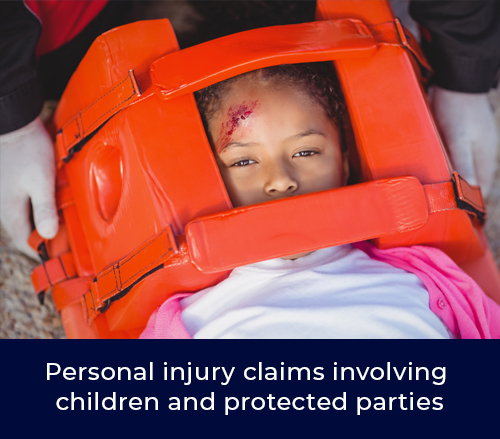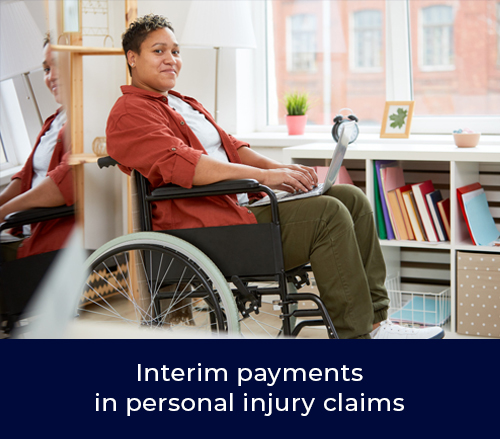Understanding brain injuries and when to claim compensation
Are you or a loved one suffering from a brain injury that has affected your life? Do you find yourself struggling to cover the high medical costs and other expenses associated with such an injury? If so, then it’s essential to understand how brain injuries occur. Let us guide you through the process of filing a successful personal injury claim and what steps you can take to obtain the compensation that you deserve.
What is a brain injury?
Brain injuries can be mild, moderate, or severe, depending on how much damage has been done to the brain. A mild brain injury, also known as a concussion, can cause temporary changes in your mental state and physical functioning. A more serious brain injury can result in long-term problems that affect your memory, learning, and motor skills. The most severe brain injuries can cause coma or even death.
Every brain injury is unique, and the impact of the injury will differ from case to case. Some symptoms may fade over time while others may have long-term effects.
Causes of brain injuries
There are many different causes of brain injuries, but some of the most common include:
- Road traffic accidents
- Work accidents
- Injuries resulting from an act of violent crime committed against an individual.
- Injuries incurred while participating in sports activities.
- Injuries occurred in an amusement park
If your claim proves successful, the total compensatory award will be made up of two awards: general damages and special damages.
Award for general damages
The Judicial College Guidelines (16th edition) offer assistance on what can be awarded for any successful claim. Every case has its own set of special features and circumstances that the court takes into account when coming to a decision. However, the following criteria will be used by the court when making their ruling:
Very severe injury
The injured person is likely to show very limited responsiveness to their surroundings, be unable to use language, suffer both urinary and faecal incontinence and/or require full-time nursing. Compensatory damages may range from £282,000 to £403,000.
Moderately severe injury
The injured party will suffer serious impairments and be heavily reliant on others, requiring constant care. Such disabilities could be physical, psychological or a combination of both. The compensation awarded can range from £219,000 to £282,000.
The Guidelines move on to cover the less severe categories of brain damage, including moderate and minor cases. The lowest award amount in this range is £2,210.
Special damages
Special damages aim to compensate the injured person for the financial impact and loss as a result of the brain injury. Those suffering a particularly severe brain injury will normally require considerable care and medical attention, as well as potentially needing specialised gadgets or changes made to their home.
It is often assumed that where brain injury compensation claims settle for figures of over £1M, the compensation has been acquired by the claimant or that the settlement is a large amount of money. However, this large award is necessary to cover the lifelong care and needs of the injured party, as well as any modifications that need to be made to their home and the inability to earn an income.
Furthermore, brain injuries can be life-threatening, requiring ongoing care and potentially hospitalisation for the rest of someone’s life. Special damages awards seek to restore the injured person to the circumstances prior to their accident; however, in cases of especially severe trauma, such compensation cannot possibly return them to their pre-accident state. Nevertheless, these payments can make a tremendous difference when it comes to improving post-injury living conditions and quality of life.
When can you claim compensation for brain injuries
If the accident meets the following criteria, you may be eligible to make a personal injury claim:
- The accident took place within the last three years.
- Someone wholly or partially caused it else.
- In accordance with the law, the defendant had a legal obligation to exercise a duty of care towards you and this duty was breached.
- The breach of duty was a result of negligence.
How a personal injury solicitor can help
If you have suffered a brain injury and it wasn’t your fault, get in touch with one of our personal injury experts. We will help you through the whole process from gathering evidence to representing you in court and negotiating the settlement. We work on a No Win No Fee basis so you won’t pay unless we win your case.
Get in touch with one of our personal injury experts
Use the online chat on our website
Call us on 020 8578 7778
E-mail us contact@silveroaksolicitors.com
Visit us at our office. We are open Monday-Friday 9am - 5.30pm
When you first contact us, we will ask for some initial details, including your contact information and the nature of your enquiry. You can be assured that everything you discuss with us will be completely confidential, and any information stored by us will be in accordance with UK data protection regulations.






































